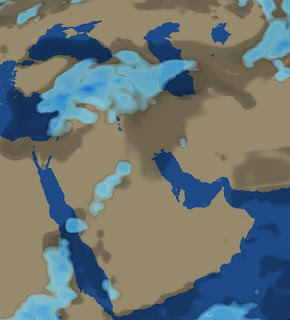CRRC Fellow Dr. Alex Sarishvili recently used the 2004-2005 CRRC Data Initiative (DI) to identify and categorize three distinct groups of Georgian households sharing similar social and economic attributes based on household expenditure and income-related questions. One of Sarishvili’s main…
2007
The lack of social capital is often seen as one of the main factors holding back political, social and economic development in the South Caucasus. Social capital here refers to the trust that makes cooperation possible. Without cooperation, commentators note,…
How is the Caucasus plugged into the world-wide research community? One good indicator is this list at J-STOR, since this online database of journal articles is a very valuable resource for researchers.
Azerbaijan — we are alone: here it is…

Is it Europe, or is it Asia? Quite literally, where is it on the map? On a rainy Saturday afternoon we took a look at online weather sites (we were looking for hope online), to check where the Caucasus ended…
Pre-election polling has become an increasingly big business in the South Caucasus. The Armenian elections, scheduled for May 12, again illustrate this. Much of the polling appears like a quick job with little attention to scholarly rigor. However, the results…
World Vision, a development NGO located in Georgia and worldwide, has come out with a new research report on street children in Georgia. If you are interested in the report, we would be more than happy to send it to…
May 3 is World Press Freedom Day, and an occasion to look at how the three countries are doing in terms of press freedom. Freedom House has released a comprehensive report with detailed summaries.
In the Caucasus, these are the…
Political reporting is often focused on the capitals. However, for the majority of the population politics remains strictly local, with local governance having a huge impact on life. After all, it is the municipalities that provide drinking water, clear waste,…
